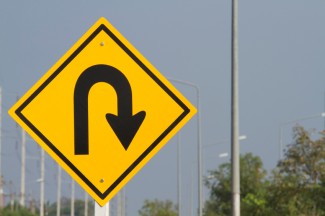With a critical vote coming as soon as Monday, Iowa is at an important crossroads as legislative efforts threaten to scale back energy efficiency. In recent weeks, legislators have introduced bills that would deprive homes and businesses of valuable programs that keep energy costs down, create jobs, reduce pollution, and defer construction on costly and excessive energy generation. While some attacks have been unsuccessful, Senate File 2311, which days ago passed out of a Senate committee, poses the greatest threat. The bill would significantly weaken established efficiency programs and possibly eliminate the requirement that utilities provide these programs to customers.
A history of success
Iowa first began requiring its utilities to offer energy efficiency programs under legislation passed in 1990. In 2008 the state legislature and Iowa Utilities Board strengthened these efforts by extending the requirement to municipal utilities and cooperatives and directing investor-owned utilities (IOU) to increase annual savings. Since then, utilities have saved 400,000 – 500,000 MWh from newly installed energy efficiency measures each year, and these savings add up over time. According to an Energy Futures Group analysis, since 2009 efficiency programs implemented by MidAmerican and Interstate Power & Light have provided approximately 10% of customers’ total annual electricity needs and produced lifetime savings equal to five years of total residential electricity consumption. For every $1 spent on electric energy efficiency programs in Iowa, residents and businesses have reaped $2 in benefits.
Future energy and cost savings in jeopardy
Iowa legislators have proposed bills that would drastically weaken the efficiency programs utilities provide to their customers. If the bills pass, customers can expect rebates for smart thermostats, energy-saving appliances, and home energy audits to be scaled back (or even eliminated altogether), despite public polls showing 97% of Iowans support increasing energy efficiency, and 82% support requiring utilities to increase investment in energy efficiency. The legislation would also deal a heavy blow to the 20,000 Iowans working in the energy efficiency sector and directly undermine one of the key objectives of Iowa’s recently published statewide Energy Plan — to promote widespread adoption of energy efficiency and renewable energy.
Rolling back efficiency efforts is also at odds with the findings of a September 2017 energy efficiency potential study completed for the Iowa Utilities Association, which determined that 17% of electricity use and 15% of gas use in the state could be saved cost-effectively through efficiency programs over the next decade. While MidAmerican’s goal to provide 100% renewable energy to its customers provides vital leadership toward a clean energy future, efficiency must remain a key pillar of this clean energy future. Saving energy complements efforts to shift toward renewable energy in important ways, such as by reducing energy demand, giving customers control over their consumption and costs, and reducing the investment required to meet the renewable energy goal.
Senate File 2311 (formerly SSB 3093) would effectively eliminate all funding for utility energy efficiency programs and allow future funding for programs only if customers voluntarily paid into the energy efficiency fund. (Imagine if utilities could pay for a power plant only if customers volunteered to do so!) Other weakening efforts include an arbitrary cap limiting efficiency and demand response expenditures to no more than 2% of an electric customer’s bill or 1.5% of a gas customer’s bill. This cap would prevent utilities from investing in a low-cost resource, even if investing in energy efficiency is a better deal for customers than any alternative resource. The bill would also change the state’s procedures for determining cost-effectiveness of programs, eliminating any consideration of the long-term societal benefits that energy efficiency provides to customers.
Meanwhile Senate Study Bill 3078, which remains in subcommittee, would eliminate the requirement that utilities offer efficiency programs. House Study Bill 595 would enable large industrial customers to opt out of energy efficiency programs altogether, allowing them to reap the grid and societal benefits of efficiency while shifting the associated costs to businesses and homeowners. While HSB 595 did not advance out of committee, its provisions could be resurrected in future bills.
Iowa should expand access, rather than eliminating savings
Iowa legislators should be examining ways to increase energy efficiency and expand access to underserved customers, rather than looking for ways to eliminate efficiency programs that help Iowans save energy and money. The state’s current efficiency standard allows small public utilities and cooperatives to set only voluntary goals, meaning rural customers and others outside IOU service territories remain underserved by efficiency programs and miss out on the roughly $325 million in net benefits these programs produce each year. But rather than address this inequity, the legislation would further weaken efficiency reporting requirements for these smaller utilities and send a damaging ripple effect throughout the economy by dismantling programs that create local jobs and keep dollars in consumers’ pockets.
How to increase savings, instead of increasing bills
Detractors have sought to characterize efficiency spending as a hidden and gratuitous fee. While it is true that a surcharge funds these programs directly, they eliminate energy waste in homes and businesses, leading to energy bill savings by reducing consumption and the need for grid investment. This longstanding approach to energy efficiency in Iowa — and states around the country — is guided by the simple reality that the cheapest energy is generally the energy we don’t use.
Iowa utilities should follow the example of neighboring utilities, like Xcel in Minnesota. Xcel recognizes the benefits of energy efficiency, investing in efficiency even while Minnesota customer electricity bills are 14th lowest in the country. Analysis released last week by the Energy Information Administration shows that electric expenditures for Iowa customers are also below the national average, ranking the state 17th cheapest compared to other states. The low energy bills in both Iowa and Minnesota can be credited in part to energy efficiency. As ACEEE and others have found, energy efficiency is a low-cost energy resource, providing electricity at an average cost of 3 cents per kWh to help keep rates low.
By looking to the success of its neighbors and other states that have found ways to design stronger, more inclusive programs that bring additional customers into the fold, Iowa has an opportunity to build on its success rather than open the door to more energy waste. If keeping customer costs low is truly the driving goal of Iowa’s energy utilities, energy efficiency should remain a key strategy.

